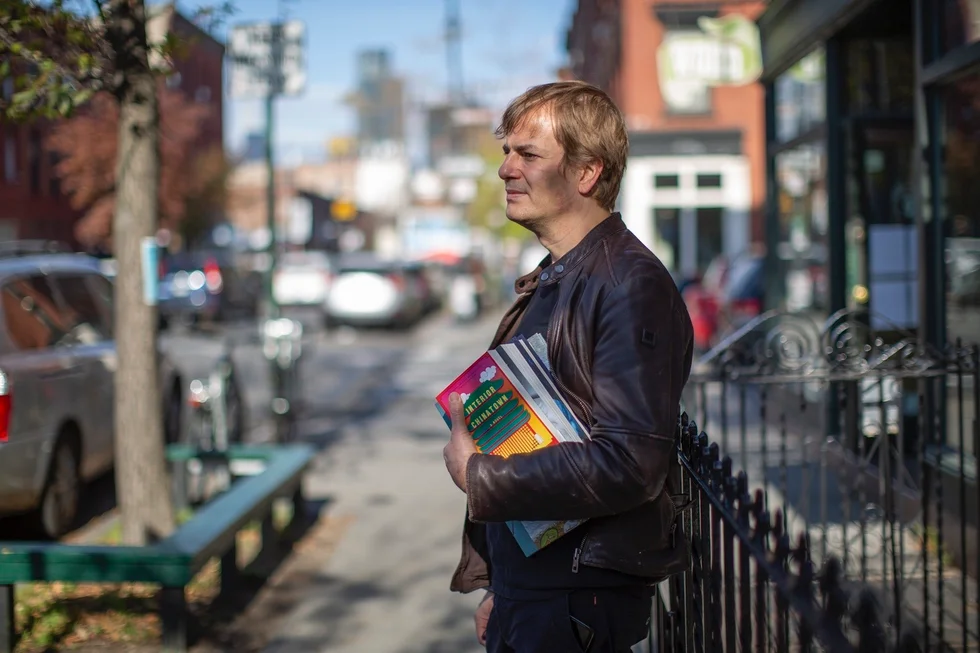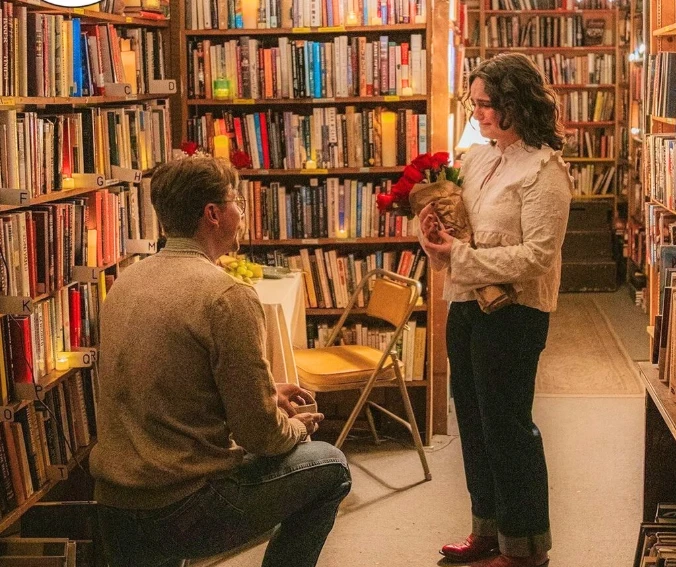Stepping in to save independent bookstores in the age of digital convenience, Andy Hunter is on a mission. But how does he plan to make this happen?
Times are tough for independent bookstores. It’s grown too easy simply to head online, search a database, and get the titles we want delivered directly to our doors. But these indie shops still have such a huge role to play – they bring color and vibrancy to the high street, and they help us foster personal connections, both with the books we buy and with the way we buy them.
In other words, indie bookstores are treasures that need to be protected. But how do we do this? How do we safeguard indie shops against seemingly insurmountable odds?
Andy Hunter of Bookshop.org believes he has the answer.
Understanding the Scale of the Problem

When Andy Hunter was at university, he knew that literature and writing were areas he wanted to explore. He and his college friends ran their own limited-run zine, and, though he was working towards becoming a computer programmer, he went on to write a novel and edit a national magazine.
In 2009, however, Andy began to notice something scary happening in the world of literature.

“I was watching as Amazon ate everybody’s lunch,” Andy told Forbes in January 2024.
“It grew from 10% of the book market in 2009, to 25% then to 50% by 2019. Basically, one out of every two books sold was sold by Amazon.”
These are frightening numbers, and Andy understood that something had to be done.
“I got a little worried about what that was going to mean for the culture around books,” Andy said. “So, I decided to start Bookshop.org.”
Launching Bookshop.org
In January 2020, Andy launched Bookshop.org. The business model was reasonably simple. In fact, it would be familiar to anyone who’d ever bought a book online – customers visit the site, search for what they need, make their purchase, and receive their title.

However, instead of connecting you to a vast network of physical and digital repositories monopolizing the industry, Bookshop.org was all about putting you in touch with indie stores serving a wealth of different locations.

So, when you buy a book through the site, most of the profits go to the independent stores themselves. How these profits are shared depends on the nature of the purchase. If the customer went to a specific store listing to buy a book, that store gets 100% of the profit allotment. If the search was more general, then 33% of the profit is distributed among the other bookstores listed on the platform.
Bookshop.org takes a small cut, which keeps it competitive and thriving in a difficult marketplace.
Overcoming Obstacles
That difficult marketplace got significantly more difficult almost straightaway. By the spring of 2020, the United States was entering the first of the COVID-19 lockdowns, and no one knew what to expect.
This was particularly scary for a platform like Bookshop.org, which had literally just started and had only $750,000 worth of funding.

However, the COVID-19 pandemic became a time in which people got to grips with long-dormant interests or explored new forms of intellectual and creative stimuli. So Bookshop.org was providing a service that everyone wanted a piece of.
At the beginning of the pandemic, the site was pulling in $10,000 worth of sales a day. Within weeks, this had reached $150,000, while the number of stores listed on the platform exploded from 250 to 1,500.
The ‘Hail Mary’ that Paid Off, and Could Help Save the Industry
“ It was kind of a Hail Mary,” Andy Hunter says, and he doesn’t use this term lightly. The odds really were stacked against them back when Bookshop.org first launched.
“At the time, I was like, Well, this almost certainly won’t succeed because I’ve never done anything like this before, and the odds are completely against us. Nobody wanted to invest in it.”

But Andy’s desire to make a difference for indie bookstores across the USA, and beyond, spurred him on.
“Nothing is going to get better if you don’t do anything about it,” he remembers. “So, at least we were going to try to do something about it. And, fortunately, it did succeed — and it actually succeeded beyond our wildest dreams.”
Andy’s right. As of July 2025, the project has raised $39 million in funding and is changing the game for independent bookstores. It’s not just keeping them afloat… It’s helping them thrive.
Join our community of 1.5M readers
Like this story? You'll love our free weekly magazine.








